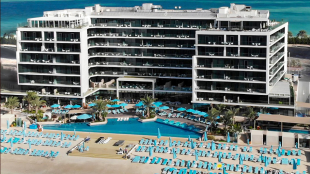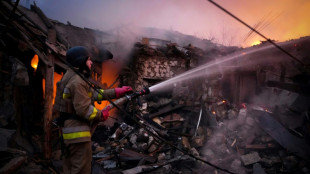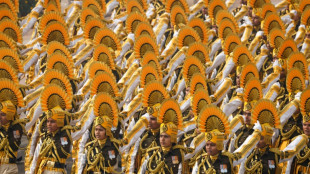

Dutch unveil 17-bn-euro package for hard-hit households
The Dutch government announced an "unprecedented" 17.2 billion euro package on Tuesday to help citizens facing soaring energy prices and double-figure inflation driven by the ongoing war in Ukraine.
Dutch King Willem-Alexander unveiled the package as he opened parliament in The Hague, amid public cheers and jeers and opinion polls showing dipping confidence in Prime Minister Mark Rutte's government.
"A direct consequence of the war and the international sanctions against Russia is that gas, electricity and food have become considerably more expensive," the king said in his speech.
A summary of the new 2023 budget said the government is making 17.2 billion euros available next year and a further 4.9 billion in the following years.
Inflation in the Netherlands was at 12 percent in August according to the Dutch Central Statistics Bureau (CBS), three percent higher than the European Union average and the highest it's been since the 1970s.
Energy prices rose by a staggering 170 percent and electricity by 149 percent in August, the CBS said.
To combat the effects, the Dutch government announced a price cap on gas and electricity to be introduced from January 1.
- Cheers and jeers -
Parliament's opening this year was the first time since the outbreak of the coronavirus pandemic in 2020 that the public was allowed to line the route between the king's palace and the Royal Theatre in The Hague.
Thousands of onlookers, many decked out in orange, thronged the streets to watch the king pass in his coach.
But there were also jeers from members of the crowd and some waved upside-down Dutch flags -- a symbol of discontent with premier Rutte's government, particularly amongst farmers.
Several opinion polls published by the NOS national broadcaster -- including one conducted by the EenVandaag current affairs programme among 30,000 respondents -- "showed that trust in politics are exceptionally low".
The EenVandaag poll said only 15 percent of respondents still trusted the government.
Rising inflation, energy prices driven by Russia's war in Ukraine, housing shortages and anger over the government's climate plans all contributed to loss of trust, the polls said.
"We are here today to tell the government that things just cannot continue this way," farmer Jan Olsthoorn, 40, told AFP.
"We are standing with our backs to the wall," said Olsthoorn, wearing a T-shirt sporting an upside-down Dutch flag.
S.Kraus--MP



